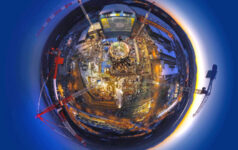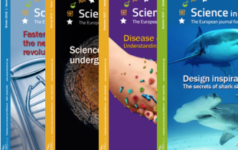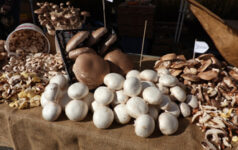Articles
Showing 10 results from a total of 418
Science in School is published by EIROforum, a collaboration between eight of Europe’s largest inter-governmental scientific research organisations (EIROs). This article reviews some of the latest news from the EIROs.
Give your students the opportunity to work as real scientists and win a unique experience experimenting at CERN.
Have a look at some of the most popular articles from the last four issues of Science in School.
Pathogens that threaten human health are constantly evolving to keep ahead of our defences. But we can now track these changes at the genetic level, even as they are happening.
Get your hands dirty with these classroom experiments exploring the composition of soil – and find out why this matters.
By assembling a ‘backpack laboratory’, you can break away from the lab bench and take tests for starch and glucose into the wild outdoors.
How many ‘chemicals’ are there in a fresh mushroom? These simple experiments reveal the hidden chemistry within natural foods.
Can you stop the tray from tipping? Learn about the law of the lever to beat your opponent in this simple game.
Get a glimpse into the weird and wonderful life on Earth with the three winning entries in the Science in School writing competition.
Dinosaur discovery, self-sufficient space flight and structural biology for students
Students and science collide: CERN’s Beamline for Schools competition
Year in review: our ten most-read articles
Evolution in action: pathogens
Field research: discovering the structure of soil
Natural experiments: taking the lab outdoors
Natural experiments: chemistry with mushrooms
Balancing act: the physics of levers
Student competition: the search for the strangest species on Earth


























